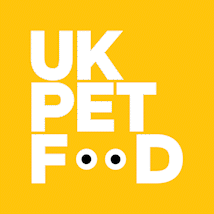Vegetarian and Vegan Diets Factsheet
With a wide range of pet food products on the market, pet owners have a lot of choice when deciding what to feed their pet. Many want to reflect their own personal preferences in their decision-making and this may include feeding vegetarian or vegan foods to their pets.
If you are thinking about a vegetarian or vegan diet for your cat or dog, the information below provides an overview of factors to consider. If you decide to change your pet’s diet, please consult your vet first and introduce any change gradually.
MANUFACTURED PRODUCTS ARE DIFFERENT FROM HOME MADE DIETS
It is important to distinguish manufactured products and home- made diets. Formulating complete (where the food contains all the nutrients that an animal needs) and nutritionally appropriate pet foods is challenging, particularly for species such as the cat. UK Pet Food advises not to feed home-made diets to dogs and cats as these may risk nutritional deficiencies and imbalances which can have serious health consequences. This advice includes home- made vegetarian or vegan diets.
In this factsheet we expand more on manufactured vegetarian and vegan products.
IS IT POSSIBLE TO FORMULATE COMPLETE VEGETARIAN OR VEGAN DIETS FOR DOGS AND FOR CATS?
Manufactured vegetarian and vegan (entirely plant-based) diets are now available for both cats and dogs. With advancing technology and research, nutrients that were previously only available from animal-based ingredients can now be made synthetically or be sourced from novel ingredients.
Whilst it is technically possible to make complete and balanced vegetarian and vegan diets for dogs and cats, these require careful formulation by highly qualified animal nutritionists to ensure that they meet the needs of pets at their various life stages, as well as addressing the particular needs of the species concerned.
ENSURING A DIET IS SAFE AND NUTRITIOUS FOR YOUR PET
It is important to ensure that any diet fed to a pet contains all the nutrients that they need, in the correct amounts and proportions, and of a quality that the animal can digest, absorb and metabolise. A reputable manufacturer, where diets are formulated by qualified and experienced animal nutritionists and/or veterinary nutritionists, would be a good starting point if considering a diet change.
WHAT ARE THE LONG-TERM EFFECTS OF FEEDING A VEGETARIAN OR VEGAN DIET TO DOGS OR CATS?
Conventional dog and cat foods, which include animal-based ingredients, have been fed to generations of pets for decades and the pet food industry has a comprehensive understanding of the nutritional science behind these products, helped by the very large number of animals fed in this way. Some manufacturers will also carry out feeding trials – where the food is fed exclusively to a number of pets for a suitable length of time and the pets’ health is evaluated – and this helps to ensure a food’s adequacy.
Vegetarian and vegan diets are relatively new to the market and potentially fed to a relatively small portion of the pet population. For this reason, extensive data are not yet available to study the effects of these type of diets on long-term health of dogs and cats. However, to date, there is little evidence of adverse effects arising in dogs and cats on vegan diets.¹ In the growing body of published research investigating outcomes in pets fed vegetarian or vegan foods, the notable observation to date is that these foods (as for all foods fed to pets) should be appropriately designed and be nutritionally sound.
VEGETARIAN AND VEGAN DIETS FOR DOGS
VEGETARIAN AND VEGAN DIETS FOR CATS





